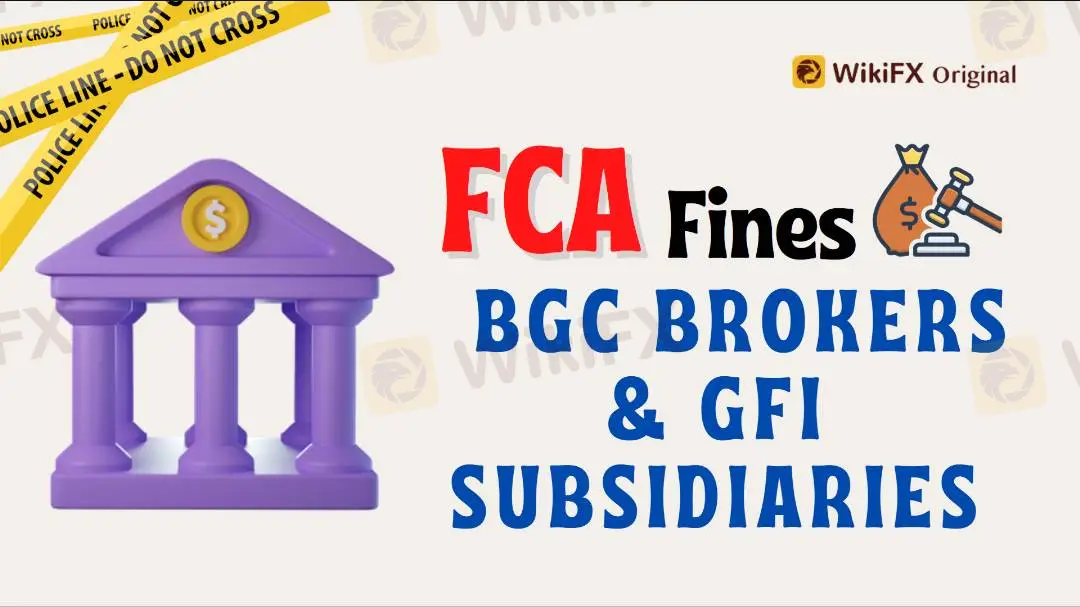FCA Fines BGC Brokers & GFI Subsidiaries
Abstract:Due to inadequate control systems and ineffective detection of potential market abuse, the Financial Conduct Authority (FCA), the UK's regulatory watchdog, fined BGC Brokers LP and two GFI Group subsidiaries, GFI Brokers Limited and GFI Securities Limited.

Due to inadequate control systems and ineffective detection of potential market abuse, the Financial Conduct Authority (FCA), the UK's regulatory watchdog, fined BGC Brokers LP and two GFI Group subsidiaries, GFI Brokers Limited and GFI Securities Limited, a total of £4,775,200.
According to the FCA, the inter-dealer brokers did not put the Market Abuse Regulation's (MAR) requirements for trade surveillance into practise. The failure to enforce appropriate frameworks has resulted in a significant increase in the risk of suspicious trading activity going undetected.
Trading firms, in the nearly two-year period between 2016 and 2018, used flawed and ineffective surveillance procedures that were unable to adequately address market abuse. Moreover, BGC and GFI systems did not cover all asset classes under MAR.
Upon evaluating the profiles of these companies in question, WikiFX discovered that they have low Wikiscore which translates into their high underlying risk and low credibility.\



“Oversight of our markets is a regulated partnership between the FCA and market participants, and so gaps or holes in a firm's ability to monitor and detect abusive trading poses direct risks to market integrity. This case is another example of the FCA's determination to ensure firms prioritise market integrity and the maintenance of high standards of compliance,” Mark Steward, the Executive Director of Enforcement and Market Oversight at FCA, commented.
The Executive Director of Enforcement and Market Oversight at FCA, Mark Steward, explained that “oversight of our markets is a regulated partnership between the FCA and market participants, and so gaps or holes in a firm's ability to monitor and detect abusive trading poses direct risks to market integrity. This case is another example of the FCA's determination to ensure firms prioritise market integrity and the maintenance of high standards of compliance.”
MAR was established six years ago, strengthening the standards for reporting and detecting market abuse. It includes a duty to keep an eye on orders and transactions to spot possible fraud efforts.
The FCA performs self-supervision of misuse by collecting data from all players in the regulated market. A specific market surveillance team controls the suspicious transaction and order reporting (STOR) regime. As part of its mandate, it carries out ad hoc checks among market participants to assess whether they control potential market abuses.

Related broker



Read more

Account Deleted, Funds Gone: A New Broker Tactic to Beware Of?
The main trading dashboard account of a trader for LQH Markets was completely deleted by a broker. The trader is not being offered any access to their funds or profits. This incident shows the risks of trading markets and brokers and the importance of protecting your funds without relying on any broker.

CySEC reaches €20k settlement with ZFN EUROPE
According to report, the Cyprus Securities and Exchange Commission (CySEC) announced today that it has entered into a settlement agreement with ZFN EUROPE Ltd for the amount of €20,000. This settlement resolves a regulatory inquiry into ZFN Europe’s compliance with Cyprus’s Investment Services and Activities and Regulated Markets Law of 2017, as amended.

PrimeXBT Expands Trading Options with Stock CFDs on MT5
PrimeXBT launches stock CFDs on MetaTrader 5, offering shares of major U.S. companies with crypto or USD margin for enhanced multi-asset trading.

Broker Comparsion: FXTM vs AvaTrade
FXTM and AvaTrade are two well-established online brokers offering forex and CFD trading across global markets. Both enjoy strong reputations and high ratings on WikiFX—FXTM holds an AAA overall rating, while AvaTrade scores 9.49/10, indicating they’re regarded as reliable choices by the community. However, since brokers have great reputation in the industry, how do we know which one is more suitable for individuals to invest in? Today's article is about the comparison between FXTM and AvaTrade.
WikiFX Broker
Latest News
Love, Investment & Lies: Online Date Turned into a RM103,000 Scam
Broker’s Promise Turns to Loss – Funds Disappear, No Compensation!
Broker Took 10% of User's Profits – New Way to Swindle You? Beware!
Pi Network: Scam Allegations Spark Heated Debate
Broker Comparsion: FXTM vs AvaTrade
Account Deleted, Funds Gone: A New Broker Tactic to Beware Of?
El Salvador and U.S. Launch Cross-Border Crypto Regulatory Sandbox
The Instagram Promise That Stole RM33,000
Kraken Partners with Alpaca to Offer U.S. Stocks and Crypto
Before You Trade the Next Big Thing, Remember the Dot-Com Collapse
Rate Calc
